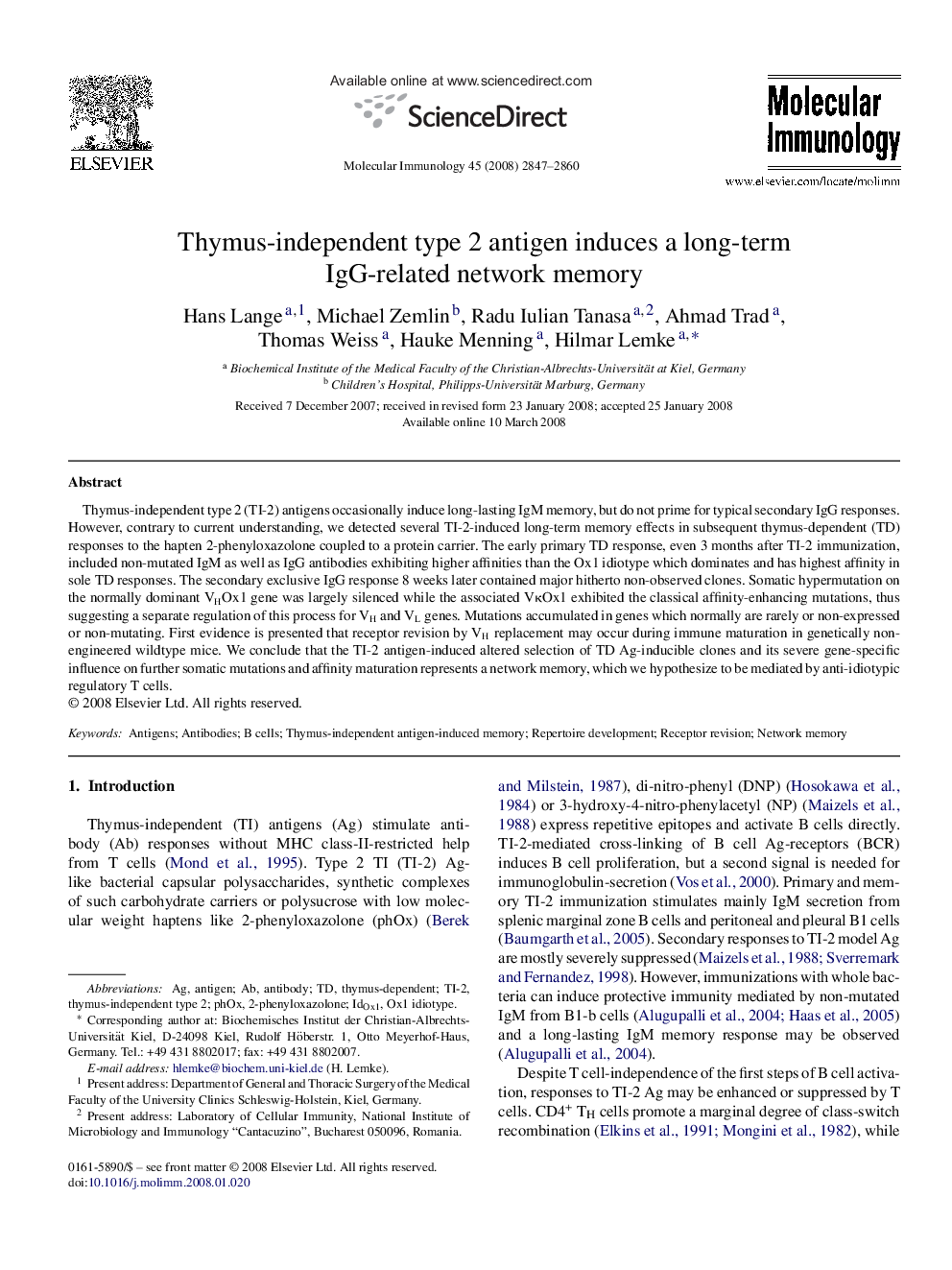| Article ID | Journal | Published Year | Pages | File Type |
|---|---|---|---|---|
| 2832937 | Molecular Immunology | 2008 | 14 Pages |
Abstract
Thymus-independent type 2 (TI-2) antigens occasionally induce long-lasting IgM memory, but do not prime for typical secondary IgG responses. However, contrary to current understanding, we detected several TI-2-induced long-term memory effects in subsequent thymus-dependent (TD) responses to the hapten 2-phenyloxazolone coupled to a protein carrier. The early primary TD response, even 3 months after TI-2 immunization, included non-mutated IgM as well as IgG antibodies exhibiting higher affinities than the Ox1 idiotype which dominates and has highest affinity in sole TD responses. The secondary exclusive IgG response 8 weeks later contained major hitherto non-observed clones. Somatic hypermutation on the normally dominant VHOx1 gene was largely silenced while the associated VκOx1 exhibited the classical affinity-enhancing mutations, thus suggesting a separate regulation of this process for VH and VL genes. Mutations accumulated in genes which normally are rarely or non-expressed or non-mutating. First evidence is presented that receptor revision by VH replacement may occur during immune maturation in genetically non-engineered wildtype mice. We conclude that the TI-2 antigen-induced altered selection of TD Ag-inducible clones and its severe gene-specific influence on further somatic mutations and affinity maturation represents a network memory, which we hypothesize to be mediated by anti-idiotypic regulatory T cells.
Keywords
Related Topics
Life Sciences
Biochemistry, Genetics and Molecular Biology
Molecular Biology
Authors
Hans Lange, Michael Zemlin, Radu Iulian Tanasa, Ahmad Trad, Thomas Weiss, Hauke Menning, Hilmar Lemke,
